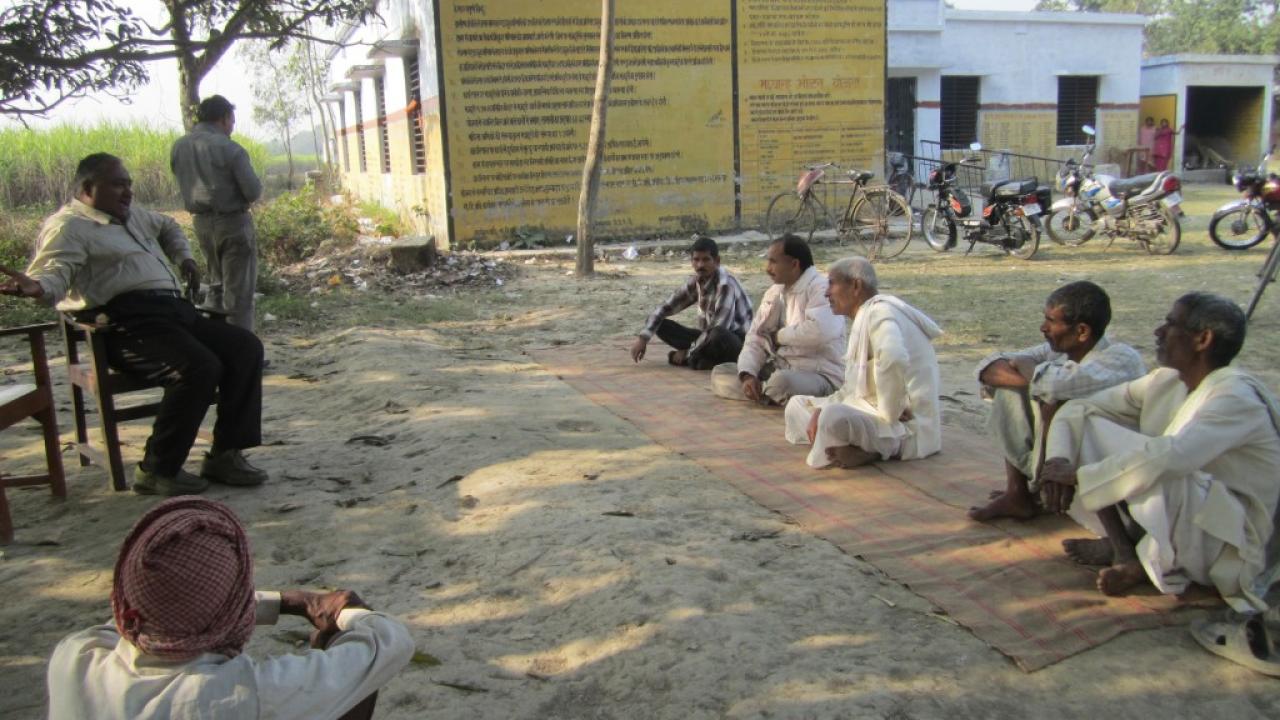
Agriculture in India is mostly rain-dependent, as only 35 percent of total agricultural land is irrigated. Increasingly unpredictable and extreme weather and increasing pressure on natural resources from the growing population are compounding the lack of irrigation. Monsoon rains, which provide 80 percent of India’s precipitation, have been the scantiest in decades. Worse yet, scientists predict that these rains will become even more contracted and unpredictable in the near future.
Rainfall index-based insurance is a financial product where payments are conditional on publically observable measures of rainfall over a specified period of time. Providing index-based insurance to low-income farmers has the potential to reduce underinvestment in agricultural technology, increase productivity and reduce wealth inequality. Despite strong government support for index-based insurance products, take-up rates have been surprisingly low. This poses a puzzle: if insurance products truly have the potential to improve outcomes for low-income farmers, why do we not see greater interest in these products?
Project Summary
Research funded by the Feed the Future Innovation Lab for Assets and Market Access will use a randomized controlled trial (RCT) to study the demand for and effects of offering formal index-based rainfall insurance in an environment of tightly knit informal risk sharing networks among sub-castes in India. The project takes advantage of natural variation in informal insurance among Indian farmers based on their membership in a sub-caste-based risk-sharing network, with designed (randomized) variation in the insurance contract offered.
The randomized design component of the project will help identify the causal effects of constraints to liquidity, credit and savings in explaining low take-up rates. Marketing to farmers from different sub-castes, or jatis, who are differentially indemnified through their informal risk-sharing networks will also help identify whether farmers are reluctant to purchase formal insurance contracts simply because they are already informally insured.
The first rounds of data show that when formal insurance carries the risk that payouts will not cover the full value of losses, informal risk sharing that covers unpredictable losses enhances the benefits of index insurance. They have also shown that formal index insurance enables households to take more potentially profitable risk even in the presence of formal insurance. Building on this work, the research team will conduct an additional round of data collection to understand the spillover effects of index insurance on other members of risk-sharing networks.
Anticipated Impacts
The findings from this research project will be of interest to policy makers, donors and stakeholders in the developing world working to develop financial services to serve the risk management needs of the rural poor. Index-based weather insurance is potentially a promising tool for addressing the systematic threats to agricultural production posed by extreme weather events.
